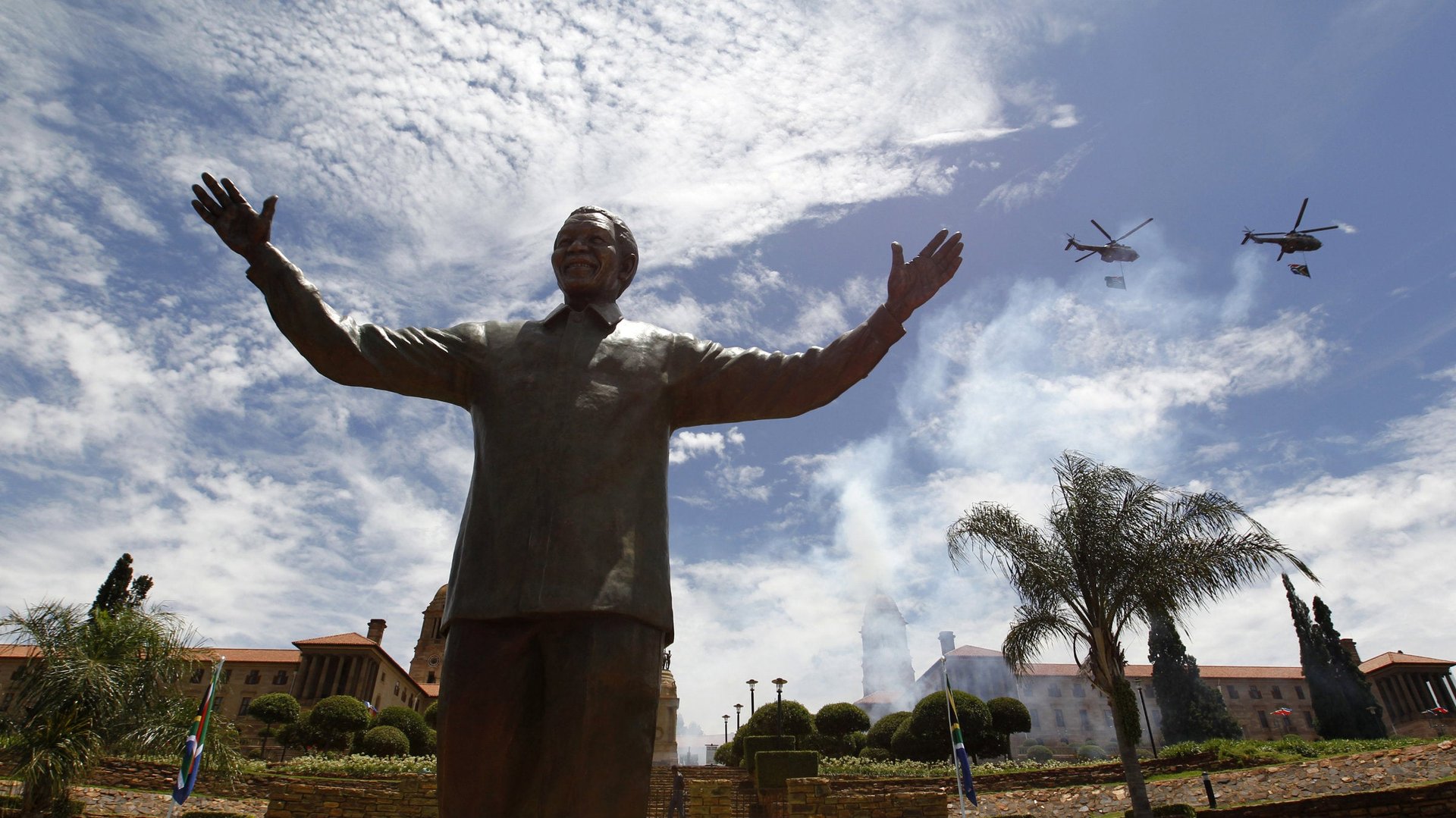How Nelson Mandela became Madiba
Since Nelson Mandela’s death on Dec. 5, countless articles have tried to reveal his unsavory side through less-than-reverential quotes:


Since Nelson Mandela’s death on Dec. 5, countless articles have tried to reveal his unsavory side through less-than-reverential quotes:
“Those who feel irritated by our friendship with President Gaddafi can go jump in the pool.”
“From its earliest days, the Cuban Revolution has also been a source of inspiration to all freedom-loving people.”
“All that (Mr. Bush) wants is Iraqi oil.”
Despite attempts to avoid the sanitation of his memory, the worldwide cry for a santo subito of Mandela has been unparalleled.
Politicians’ deaths rarely cause such fervor and devotion worldwide—especially for a politician who was once labeled terrorist. What explains such quasi-mythic devotion? The answer may lie in Shakespeare’s work, particularly in the monologue of “As You Like It”:
All the world’s a stage,And all the men and women merely players
Mandela read the complete works of Shakespeare, smuggled onto Robben Island in a single book. He understood all too well that he was one of the many actors in the human theater of public life. From the common tragedy to the comic hero, Mandela enriched theatrical genre with a character honed during his 27 years prison: the embodiment of Ubuntu, the African classic philosophy that postulates the interconnectedness of all human beings. It says, “I am because we are.”
Mandela, the Greek tragic hero
The tragedian Mandela can be found in the young and barefaced lawyer, who in the parody of a treason trial faced his persecutors dressed in traditional Xhosa kaross instead of wearing a lawyer’s suit and tie. He later explained that this was a way for him “to emphasize the symbolism that [he] was a black African walking into a white man’s court.”
Tragedy reached its peak when he made the famous three-hour speech. Fully embracing the tenor of Greek tragedy, he proudly concluded:
“During my lifetime I have dedicated myself to this struggle of the African people. I have fought against white domination, and I have fought against black domination. I have cherished the ideal of a democratic and free society in which all persons will live together in harmony and with equal opportunities. It is an ideal which I hope to live for and to see realized. But, my lord, if needs be it is an ideal for which I am prepared to die.”
Eventually, symbolically, the man who spoke those words died during the 27 years spent in Robben Island. He had to.
Mandela and the Commedia dell’arte
Mandela was resurrected through his liberation on Feb. 11, 1990—a happy denouement worthy of the best Commedia dell’arte play. Indeed, it took nearly 15 years of harsh discussions before his freedom became a reality. The hero, Mandela, wore many masks: the captor secretly negotiating his release; the militant sacredly refusing to renounce violence; the man who developed trusting relationships with the opposite side. He employed much political craftiness in order to reassure both the upholders of the status quo and those who wanted to see radical change. Once free, Mandela decided to put aside his grievances against the oppressive regime aside and introduce an entirely new character.
Final Act: the Ubuntu-inspired character makes an entrance
Thanks to Shakespeare, Mandela understood that he would need to envision more than a tragic or comic hero to be successful in the political arena. He would need to be capable of mitigating the vile instincts that his liberation would trigger in much of the South African population and the political class. The aim of his struggle was and had always been to achieve a non-racial South Africa. To that end, his new character would embody that principle through Buntu, which means “human” in most Bantu languages of sub-Saharan Africa. In Mandela’s new South Africa, whites, Indians, and blacks would all have a role to play.
In his autobiography, A Long Walk To Freedom, Mandela develops this form of reconciliation through political opportunism. He became a character driven by consensus, but hardly naïve. In the long run, he knew that this was the only way to put an end to apartheid and the isolationism of South Africa. Its effectiveness was evidenced by his funeral, a gathering that brought together characters as disparate as Raul Castro and George W. Bush. In death, as in life, he united the players for a final curtain call.